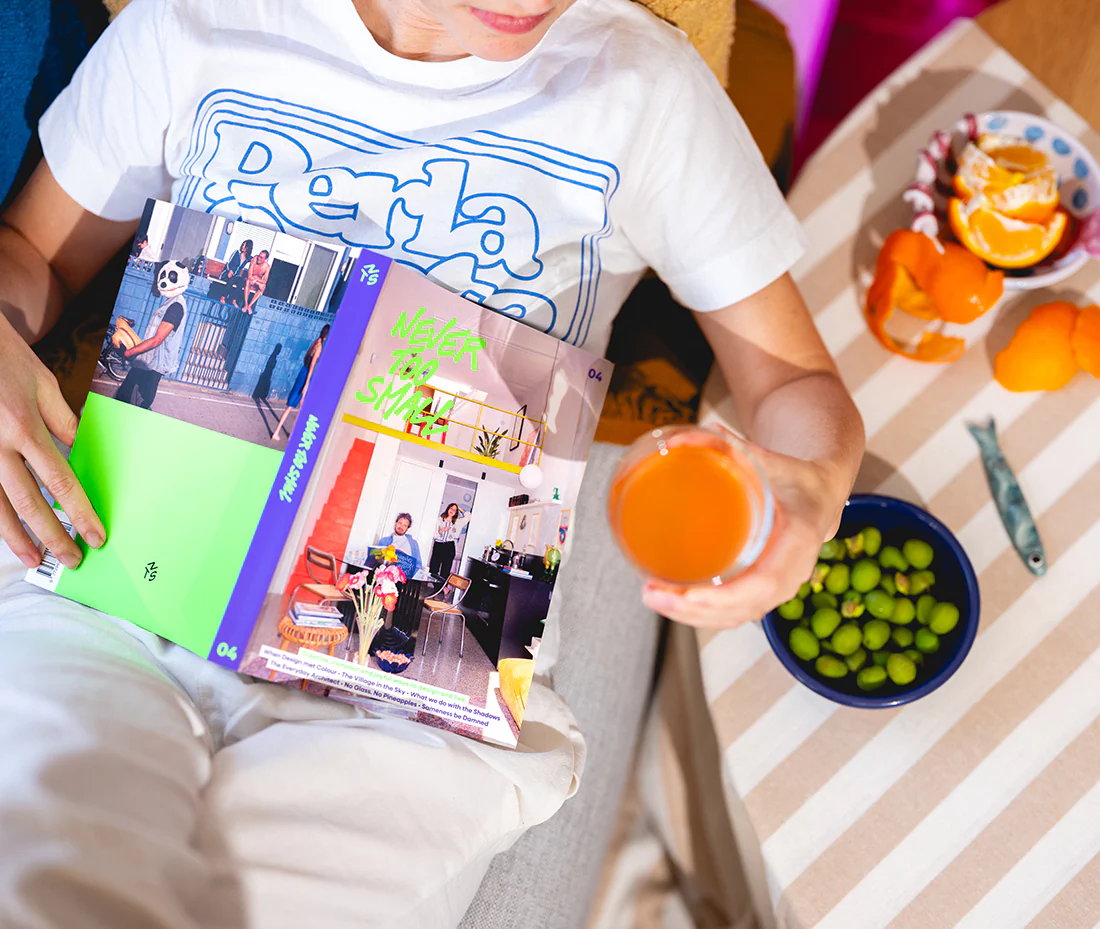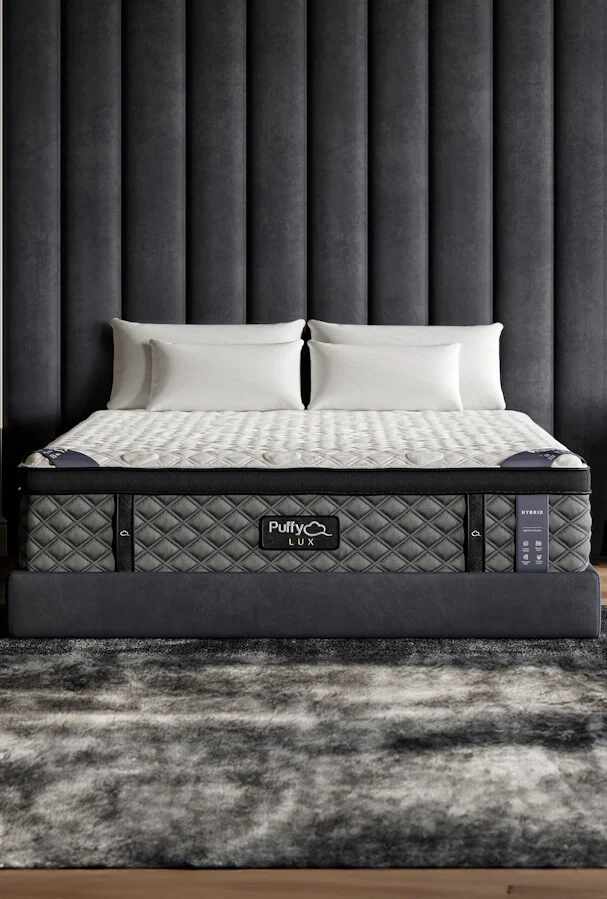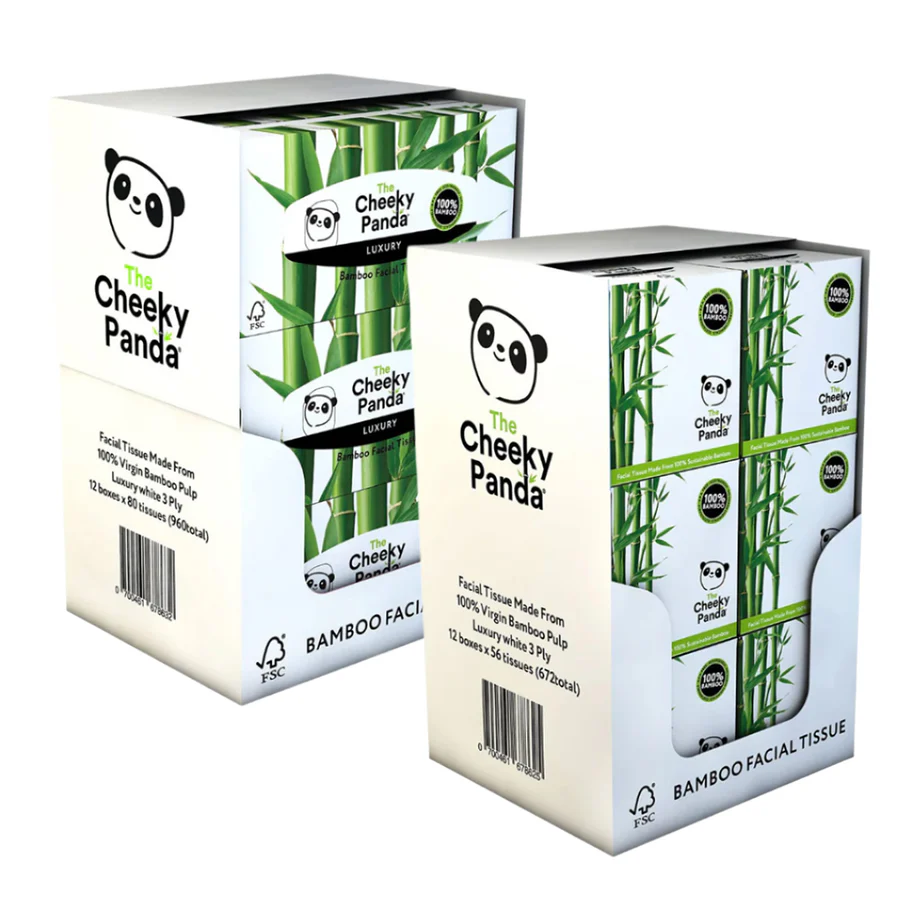Home
Home
Direct-to-consumer (DTC) home brands are reshaping the way we shop for furniture, decor, and household essentials. Brands like Burrow specialize in modular, customizable furniture, providing convenience and flexibility to customers. Parachute focuses on premium bedding and bath linens, emphasizing quality and sustainability. What makes DTC home brands unique is their commitment to delivering high-quality products at accessible prices, often bypassing traditional retail middlemen.
These brands offer a curated selection of stylish and functional products, simplifying the home shopping experience. In a world where homes have become multifunctional spaces, DTC home brands are crucial for their ability to adapt to changing consumer needs while maintaining affordability and quality. They bring a fresh, customer-centric approach to the home goods market, appealing to those seeking convenience, style, and value.

Habitus Design Group is a global interior design studio shaping immersive spaces for hospitality and high-end living. With offices in London and Singapore, they create refined environments for resorts, hotels, casinos and private residences, each grounded in place, culture and craft. Their work lives at the intersection of narrative and nuance, blending global perspective with local insight. From concept to execution, every space is shaped through deep collaboration and clear intention. Rooted in experience. Designed to resonate. Built to endure.

Stahl is the global leader in specialty coatings and treatments for flexible materials, providing high-performance, low-impact coating solutions for applications in automotive, apparel, luxury goods, footwear, packaging, and home furnishings. and long-lasting footwear finishes. With over a century of innovation and a global network of R&D labs and manufacturing sites, the company delivers cutting-edge solutions grounded in renewable chemistry and circular economy principles .

InnerAsia is a premium rug company that offers handcrafted and machine-woven Tibetan rugs rooted in traditional weaving techniques. Their collections combine heritage craftsmanship with contemporary aesthetics, resulting in distinctive, heirloom-quality rugs for modern living and workspaces. Each piece reflects a commitment to artistry, durability, and cultural authenticity.

Cascades is a luxury homeware brand offering a curated selection of elegant serveware, decor, and lifestyle accessories designed to enhance hospitality and everyday living. Known for blending traditional charm with modern sophistication, Cascades specializes in premium-quality pieces such as prayer sets, trays, and scented products. Each item is crafted to elevate the home experience with timeless style and function.

Never Too Small curates thoughtfully designed home products and furniture that support stylish, small-space living. Inspired by their popular YouTube channel, the store offers multifunctional, space-saving pieces and accessories ideal for apartments, studios, and tiny homes. Their mission is to redefine compact living through intentional design and quality craftsmanship.

Keinachtsbaum® is a German company offering a modular, handcrafted wooden Christmas tree stand made from sustainably grown ash that you assemble yourself. Instead of cutting down a whole tree each year, users insert fresh local evergreen branches into the sturdy wood frame—creating a customizable, eco‑friendly holiday centerpiece. The reusable design, crafted in a small German manufactory, aims to reduce waste and preserve trees for future seasons.

Puffy is a leading sleep company offering award-winning mattresses, bed frames, pillows, and bedding crafted for superior comfort and spinal support. With products made in the USA and backed by lifetime warranties and 101-night trials, Puffy focuses on luxury sleep at an accessible price point. Its memory foam and hybrid mattress lines cater to a range of sleep preferences and body types.

Bedgear is a sleep technology brand specializing in high-performance bedding solutions that support better, more personalized sleep. Their product line includes advanced pillows, mattresses, sheets, and mattress protectors engineered with breathable, moisture-wicking fabrics and adjustable features. With a focus on sleep as an active part of health and wellness, Bedgear combines innovation and customization to deliver tailored comfort for every sleeper.

Cheeky Panda offers eco-friendly alternatives to traditional paper products by using fast-growing, renewable bamboo. Their range includes toilet paper, facial tissues, baby wipes, and other sustainable essentials designed to reduce environmental impact without compromising on quality.

Zero Co Australia offers eco-friendly cleaning and body care products, aimed at reducing single-use plastic waste. Their innovative approach includes refillable "forever bottles" and concentrates, supporting their mission to "untrash the planet" by funding ocean cleanups with every purchase, emphasizing sustainability and environmental responsibility.
In the dynamic world of direct-to-consumer (D2C) home brands, standing out hinges on a blend of innovative product design, personalized customer experiences, and adept utilization of technology. The best D2C home brands distinguish themselves through a deep understanding of their customers’ lifestyles and preferences, creating products that not only serve functional needs but also resonate on an emotional level. A key characteristic is the integration of customer feedback into product development, ensuring that offerings are continuously refined and aligned with consumer desires. According to a report by eMarketer, 40% of consumers prefer purchasing home goods from D2C brands, attracted by the promise of quality and exclusivity.
Furthermore, technology plays a pivotal role in the success of these brands. Advanced e-commerce platforms, data analytics, and AI-driven personalization are not just buzzwords but essential tools that empower D2C home brands to deliver exceptional online shopping experiences. Brands that excel in this space leverage these technologies to offer seamless, omnichannel engagement, and personalized recommendations, a strategy that has led to a reported 10-15% increase in sales for leading D2C brands according to McKinsey & Company. For eCommerce managers and SaaS professionals exploring the D2C landscape, understanding these nuances is crucial for crafting strategies that resonate with modern consumers and drive sustainable growth in the competitive home brand category.
A successful Direct-to-Consumer (DTC) home brand stands out by offering products that not only enhance the aesthetic and functionality of living spaces but also connect with consumers on a personal level. These brands excel by understanding the evolving needs and preferences of homeowners and renters alike, delivering quality, design, and value through an exceptional online shopping experience. Here are the key factors that contribute to the success of a DTC home brand:
Consumers expect home products that are not only stylish but also durable and high quality. Successful DTC home brands prioritize craftsmanship, materials, and longevity in their products, ensuring that they withstand the test of time and use.
A strong, distinctive design aesthetic helps a brand stand out. Whether it’s a minimalist approach, bold patterns, or a focus on sustainability, successful brands have a clear design philosophy that resonates with their target audience and is consistently reflected across their product lines.
Modern consumers are increasingly interested in how products are made, including the sustainability of materials and manufacturing processes. Successful DTC home brands are transparent about their supply chain, embrace eco-friendly practices, and communicate this commitment to their customers.
Offering personalization options allows customers to feel more connected to the brand and ensures the product fits perfectly within their space and style. This can range from custom furniture dimensions to personalized color options and helps set a brand apart in a crowded market.
From browsing to unboxing, the customer experience should be seamless and enjoyable. This includes an intuitive online interface, detailed product information and images, easy navigation, and customer support that’s responsive and helpful.
Successful DTC home brands often build a community around their brand, engaging directly with consumers through social media, blogs, and newsletters. Creating content that inspires and educates about home design and lifestyle can foster a loyal community of brand advocates.
Innovations in business models, such as try-before-you-buy options, free shipping and returns, and flexible financing plans, can remove barriers to purchase and make it easier for customers to commit to larger home purchases online.
Staying responsive to changing home decor trends and customer preferences is crucial. Successful brands adapt their product lines based on feedback and trends, ensuring they remain relevant and desirable to their target audience.
While not necessarily the cheapest options on the market, successful DTC home brands offer excellent value through the quality, design, and longevity of their products. Transparent pricing without traditional retail markups can also appeal to value-conscious consumers.
The ability to quickly respond to market changes, supply chain challenges, and shifts in consumer behavior is crucial for the success of a DTC brand. This agility allows brands to innovate, adapt their offerings, and scale their operations efficiently.
In essence, successful DTC home brands understand that they’re not just selling products; they’re selling an experience and a lifestyle. By focusing on quality, design, customer experience, and sustainability, these brands create spaces that consumers love to live in, building a loyal customer base in the process.
Brooklinen, Ruggable, and Burrow Furniture stand out for their innovative approaches and keen understanding of modern consumer needs. Brooklinen brings a touch of luxury to everyday life with its premium bedding and bath collections. They've made a name for themselves by blending high-quality materials with affordability, offering a range of products that promise both comfort and style. Their success lies in understanding the desire for a touch of opulence in our daily routines, making high-end linens accessible to a broader audience.
Ruggable and Burrow Furniture, meanwhile, are redefining practicality in home decor and furniture. Ruggable’s unique selling point is its machine-washable rugs, a game-changer in the home decor industry. This innovation addresses the practical challenges of maintaining a beautiful home, especially for those with pets or children. Burrow Furniture, on the other hand, speaks to the urban dweller with its modular, easy-to-assemble furniture. Emphasizing both style and functionality, Burrow caters to those who value contemporary, minimalist designs and the convenience of adaptable furniture. These brands, with their distinct focus and innovative solutions, are reshaping the way we think about and purchase home essentials in the digital age.